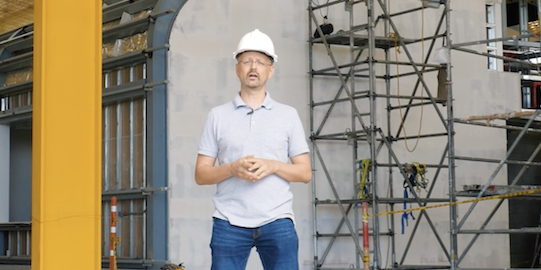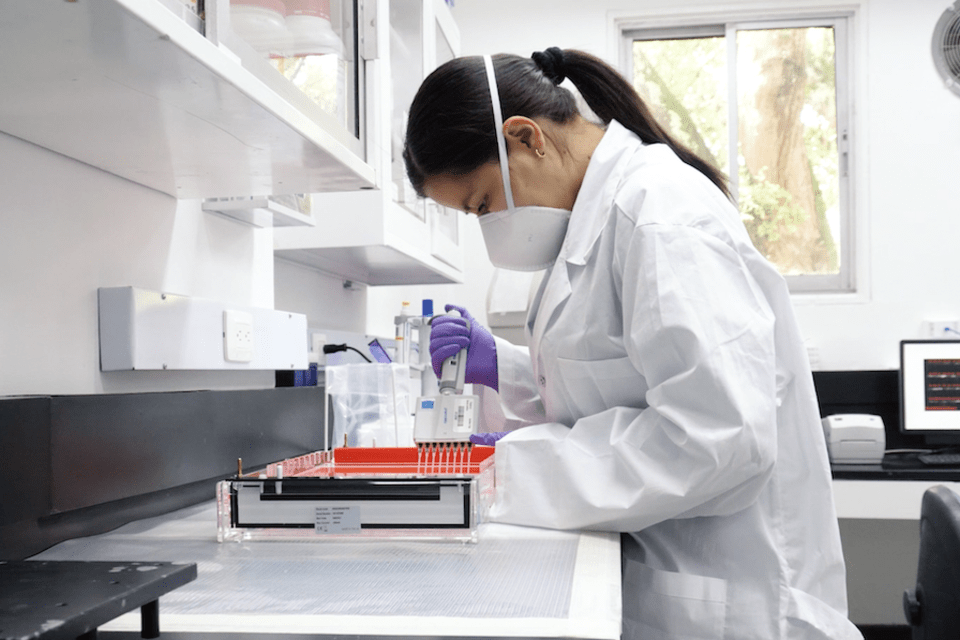Press and News Genebank joins network to boost conservation and use of agrobiodiversity

Future Seeds is the Latin American hub of international initiative to mobilize crop diversity conserved in genebanks using a suite of cutting-edge technologies.
Future Seeds, the Colombia-based genebank of the Alliance of Bioversity International and CIAT, is a member of the DivSeek International initiative, a global, community-driven network or organizations working on the generation, integration and sharing of information linked to plant genetic resources.
As part of DivSeek, Future Seeds recently became one of the 11 ‘Pilot Hubs’ of the initiative and focuses on Latin American crops. Other Hubs, focusing on other topics, are located elsewhere in the Americas, Australasia, India, Africa and Europe.
The initiative is designed to empower genebank managers, researchers, breeders, and farmers to more effectively utilize genetic variation for research, accelerated crop improvement and sustainable production. It is intended to unite genebanks, geneticists, phenomics specialists, database engineers, and even culinary experts, to boost the information recorded for crop varieties conserved in genebanks around the world, even including taste and flavor for selected cases.

The Alliance genebank in Colombia conserves diverse collections of beans, cassava, and forages.
Each Hub focuses on a particular topic contributing to a broader use of crop diversity.
“We’re going to focus on crops with centers of origin in the region, and we will coordinate workshops on topics related to the use of genomics for managing genebank collections and the policy frameworks regulating the use, access and benefit-sharing of genomic data of plant genetic resources,” said Peter Wenzl, the leader of Genetic Resources Program at Future Seeds. The one-year pilot phase will see the genebank establish a Latin American community of practice on the use of genomic and digital tools.

Peter Wenzl at the Future Seeds construction site. A video explaining the genebank is at the end of this article
Using joint resources and expertise of collaborators in other Pilot Hubs – such as the one hosted by International Maize and Wheat Improvement Center (CIMMYT) in Mexico and The James Hutton Institute in the U.K. – workshops coordinated by Future Seeds will help improve global understanding of key characteristics of crops such as beans, maize, cacao, potato and cassava.
“As an initial part of our work as a DivSeek Pilot Hub, we have distributed a survey to collect information to identify knowledge gaps and training needs at the region,” said Mónica Carvajal, a digital-genebank scientist at Future Seeds. As a research hub, Future Seeds intends to provide infrastructure including laboratory space, office areas and servers to support regional genomics-of-genebanks projects and visiting scientists.

Mónica Carvajal at the Future Seeds construction site.
The DivSeek Hubs will be rolled out over a one-year pilot phase, fostering inter-regional collaborations, leveraging regional capacity and supporting the training needs of young researchers. “Hubs are a key strategy for connecting independently funded researchers around world,” said Susan McCouch, current Chair of DivSeek International.
“This series of pilot programs is a critical first step in identifying how DivSeek International Hubs could provide a collaborative umbrella for the sharing of protocols and best practices for the plant genetic resource community. By encouraging engagement at the regional and thematic level, we can better identify opportunities to advance the use of plant genetic resources to improve crops and enhance food and nutritional security,” McCouch said.
One Hub in West Africa, located at the International Institute of Tropical Agriculture (IITA), will focus on fostering better understanding of African orphan crops – a diverse and critical set of crops for global biodiversity, like tef, finger millet, yam, roots and tubers – but generally overlooked by research communities. Another based at the Biosciences Eastern and Central Africa (BECA) institute in Kenya, will focus on the genomic characterization of African orphan crops; while one at the International Crops Research Institute for the Semi-Arid Tropics (ICRISAT) in India, focuses on supporting the genetic improvement of chickpea.
Experts hope the new Hubs will ultimately improve the way crop genetic resources are preserved and utilized, by bringing together knowledge from a broad range of players and sharing resources, know-how and data. Without a double, crop diversity is going to be a key ingredient for reshaping food systems and diets and helping agriculture to adapt to a changing world and climate.
DivSeek International is a global organization that facilitates the generation, integration, and sharing of information related to plant genetic resources, funded by Genome Canada, Genome Prairie and the Global Institute for Food Security (GIFS) at the University of Saskatchewan. Genome Prairie, one of six regional Genome Canada centres, is a non-profit organization with offices in Saskatoon and Winnipeg that develops and manages genomics and related bioscience research projects. Founded in 2012 in a partnership between Nutrien, the Government of Saskatchewan and the University of Saskatchewan (USask), the Global Institute for Food Security (GIFS) works with a diverse range of partners to discover, develop and deliver innovative solutions for the production of globally sustainable food.

